
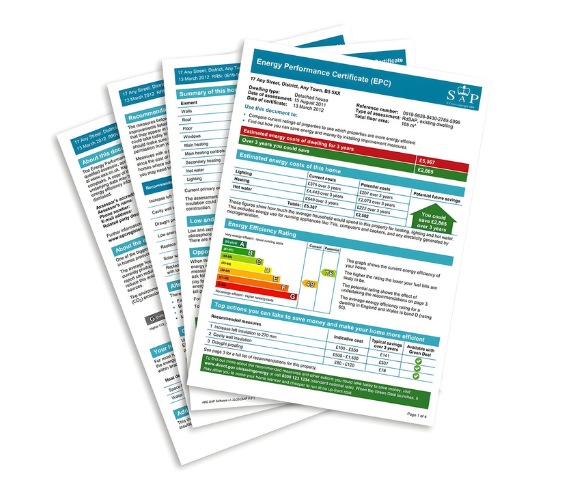
As warnings from climate experts become increasingly dire, many of us are making changes to our lifestyles to reduce our carbon emissions and our negative impact on the environment. There are dozens of ways to do this, but government-led schemes, such as the Energy Performance Certificate (EPC), can offer a way forward.
EPC Crew is one of the companies that specialises in providing EPC certificates in Romford Town, making the process as simple and straightforward as possible.
Many of our customers in Romford Town are unaware of the process involved, the benefits that an EPC certificate offers, or even why they need to get an EPC inspection in the first place.
As a leading name in this field, EPC Crew can answer all of your questions, sort out your EPC, and help you become more energy-efficient.
To begin with, there are two types of EPC: one that deals with domestic dwellings and one relating solely to commercial property. This page deals with the domestic energy EPCs for residential properties, although we do handle commercial properties as well (see our website for details).
Domestic EPCs are required by law for every property sold, built or rented out in Romford Town. It may also apply to alterations, extensions or a change of use of the building. The rules are slightly different in Scotland but are broadly the same as Wales, England and Northern Ireland. Essentially, the EPC in Scotland is only one stage of a more involved process called a Home Report.
Energy Performance Certificates come in the form of a physical piece of paper* illustrating how energy efficient a building is. The energy certificate comes with a report containing all the details relating to the survey of a property advising potential buyers or renters of any changes that are required to improve energy use.
*Although certificates are usually sent via email, a printed 'hard copy' should always be available if requested


A domestic EPC report shows a building's energy efficiency rating, on a scale from A to G, where A is 'very efficient' and G is 'least efficient'.
If you've ever seen the energy labels (a coloured sticker) on the side of a new domestic appliance showing energy efficiency ratings, it's very similar to this. Knowing the energy efficiency of the property allows the owner to make any necessary changes to improve the energy performance.
This will reduce the property's energy consumption, and, therefore, the carbon emissions.
You are entitled to look at your own Romford Town property's EPC or those for any other properties at any time*, free of charge. This allows homeowners to compare their energy rating to see how much energy they are using in comparison, and to find ways to reduce their carbon footprint.
EPC Crew can help you in this task and will offer expert advice on making the right changes.
*It is possible to remove your property's energy rating from the EPC register by contacting the Department for Levelling Up, Housing and Communities. Even so, the report will have to be shown to potential buyers or renters.
As well as the energy rating, you'll get an energy score, ranging between 1 and 100. Each band from G up to A is split into roughly ten marks. For example, you could have an energy rating of C with a score of between 69 and 80. Obviously, the higher the score, the better.
It is very common for a current and potential rating to fall into the same energy efficiency rating (say, C), although the energy score will be different. By making improvements, it is entirely possible to raise your current energy score and make your property's energy performance more efficient.
This part of the assessment is based purely on energy consumption and occupancy, and it doesn't take into account the way the residents actually use the energy.
Using this information (as well as other data from the survey), the assessor will include recommendations on the EPC as to how you can reduce your energy consumption. It also includes a projection of how much you can save.
This is a sort of step-by-step guide, and each stage will follow logically, making it simpler to achieve.
Using this guide, you can lower your environmental impact along with your energy costs.
Our goal is to consistently deliver exceptional service to all of our customers, regardless of property size. We hold ourselves to the same high standards for every client who relies on us for their EPC needs.








If you are selling a house, building or letting a property, it's up to you to ensure that it has a valid EPC certificate. There are a few ways on how to get an epc certificate, your estate agent might offer to handle this for you, which is fine, but it is a legal requirement to have one. Also, going through your estate agent could prove to be more expensive.
When you need an EPC, or you have any questions about the process, contact the EPC Crew Romford Town assessor for a friendly, professional service.
We'll arrange a visit to inspect and assess your property (or properties) and will issue a certificate in due course. We'll provide an email copy, a link to the site for you to view and download the certificate, or a paper copy (electronic copies are better for the environment!).
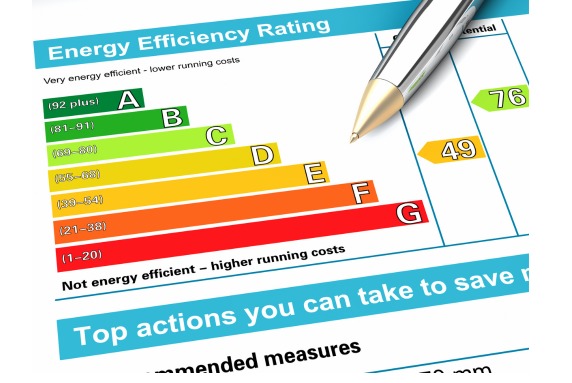

Only qualified, accredited domestic energy assessors can undertake an EPC inspection and assessment. This isn't something you can do yourself!
EPC Crew domestic energy assessors are fully qualified for the task and will work swiftly and efficiently to complete the task with a minimum of fuss.
Whether you find an assessor or the agent does this for you, they must be accredited, or the EPC assessment will not be valid.
Your EPC Crew assessor will perform several health and safety checks in your home. They will also record the dimensions of the property and look for spaces where energy may be lost (mainly through windows, ceilings, walls and doors).
The main aim is to examine energy usage and to match current and potential ratings to see where any changes need to be made.
In order to do this, the assessor will inspect the following during their survey:
Once completed, all the data is recorded, and the EPC certificate is generated. A copy is sent to the property owner and/or agent, and copies are held in the government portal. We covered full details on this in our blog in an article entitled “how energy performance certificates are calculated.
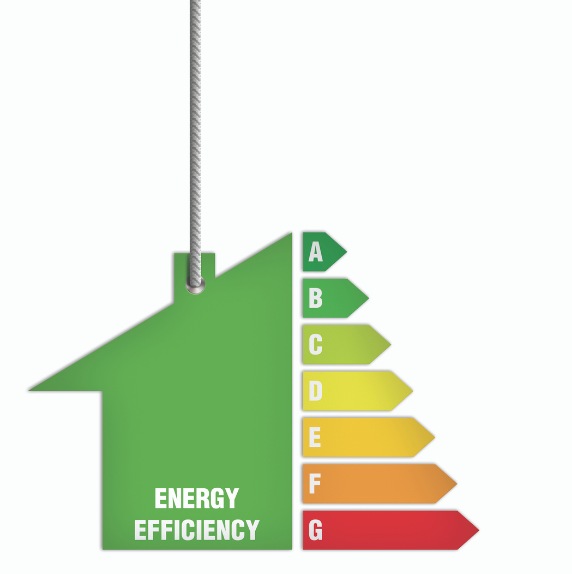

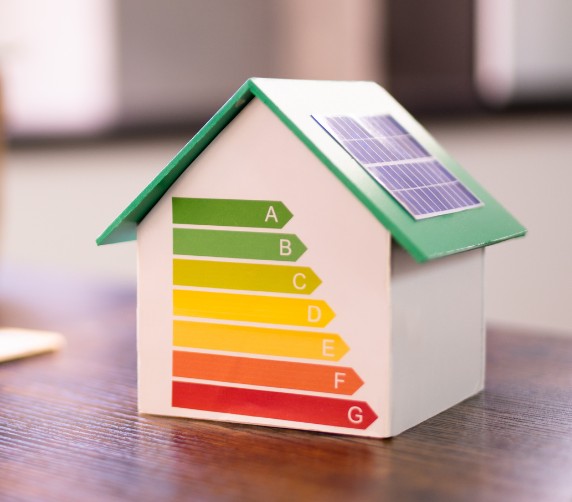
Depending on the size of the property, a full inspection and assessment will usually take between 45 minutes and an hour.
The EPC assessor won't hurry the job, as it has to be thorough, although they will always be mindful that this is your home and won't outstay their welcome.
The process is entirely non-intrusive, and we should not need to move anything to complete the task. You do not need to assist energy assessors in any way, but please feel free to engage with them if you have any questions about what they are doing and why.
Note: this process cannot be performed remotely; an assessor must attend the site in person.
The overriding motivation behind Energy Performance Certificates is to combat climate change. Concern about the environment has escalated very quickly over the last few years, with terms like climate breakdown and climate emergency now being used.
Monitoring and managing the amount of energy we use, and making improvements to make our living spaces more energy-efficient will go some way to offsetting some of the damage, but more needs to be done. Still, it's a good way to start, and it's something that everyone can do.
Aside from the need to reduce environmental damage and improve your home's energy efficiency, it is now a legal requirement to have an EPC certificate when you build, sell or rent a property in Romford Town.
Anyone buying or renting a domestic dwelling must be provided with a valid EPC rating that allows them to assess potential energy bills for the future.
The idea is that all domestic dwellings will soon have an energy efficiency rating, allowing the owner or occupier to make potential savings and reduce environmental impact.
NOTE: Your local authority can award a fine of up to £5,000 if you do not produce a valid EPC when asked to!


In April 2018, the Minimum Energy Efficiency Standards (MEES) were introduced. This legislation currently relates to private* rented properties (including new buildings), making it illegal to let any property with EPC ratings of anything less than E.
If your 'property performance' falls below the E-rating, it's your responsibility to make sure any improvements are made in order to make the necessary improvements to meet the minimum energy efficiency standard.
These regulations were set to change this year to include all residential properties for sale, but this was scrapped soon afterwards. However, there is a good chance that this could change in future (see below).
*Under the current regulations, social housing is exempt from the MEES rules, and therefore these properties don't need an EPC rating!
A domestic EPC is valid for 10 years and can be used as many times as required throughout this period. After it has expired, a new EPC certificate will need to be obtained and presented if or when the property is put on the market for sale or rental.
Having said this, it is fairly likely that the scheme will be updated and overhauled at some stage, due to increasing pressure to improve energy efficiency. We covered this topic in more detail over on our blog in an article entitled “how long does an epc certificate last”.
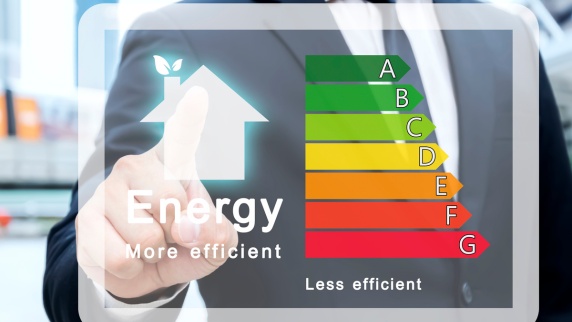
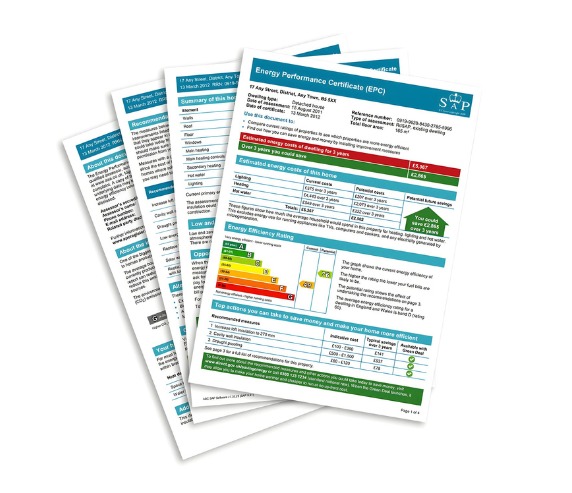
The typical cost of an EPC certificate falls somewhere between £35 and £120 inclusive of VAT.
However, the actual cost depends on a variety of factors, including:
A studio flat would be the cheapest, as you'd expect, with anything containing three bedrooms or more probably coming in at £45 and above.
The cost includes the services of the EPC Crew assessor and the certificate itself.
Contact us at your convenience to discover the exact price and to get a full breakdown of the cost. We also go over most of the details in our blog in the article entitled “how much does an epc certificate cost?”.
Your EPC Crew assessor will explain this to you following your EPC assessment.
The report will include a detailed breakdown of your current and potential energy costs, along with suggested improvements.
These might include any of the following:
You'll be provided an estimated cost of any savings you could make, although there is an initial outlay for the energy-saving measures that may be required.
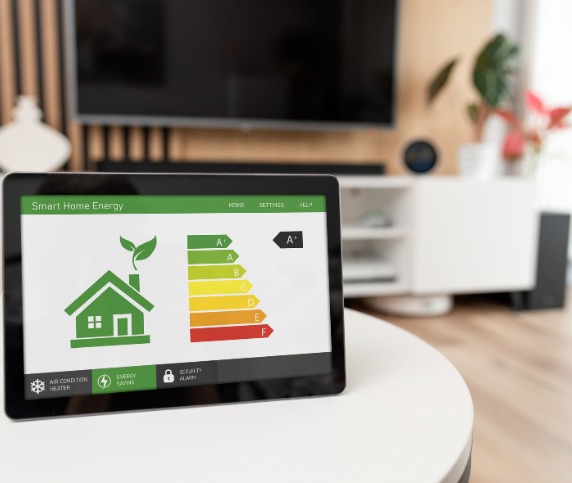
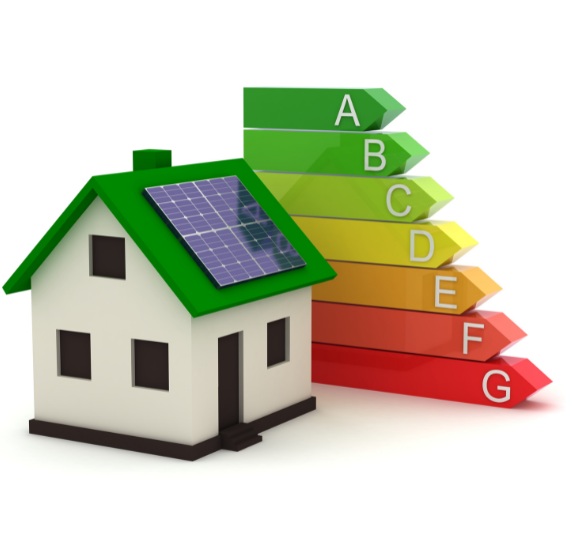
While there are no minimum requirements for homeowners, which means you are not required by law to improve your EPC rating, you could save a considerable amount of money by doing so.
The fact is that the lower the band your property falls into, the higher your energy bills are likely to be.
For example, recent studies show that a house in the G band could cost around £3,000 a year more than those in bands A, B and C.
So, not only is your house contributing more to environmental pollution, but it is also costing you a lot more than it needs to!
As it stands, only 40% of homes in the UK have a rating of C or above. It's almost certain that the government will introduce measures to improve this figure drastically in the next decade.

No; there are eight types of buildings or situations where you may be exempt, according to the current government guidelines:


Older buildings of historical interest are generally exempt, although the authorities will expect you to reach the minimum energy efficiency standards as far as possible. If any energy efficiency improv
Any structure that's unlikely to be around for very long won't need an EPC, although this could change if the building's life extends beyond this point.
Any buildings used for religious purposes, including for regular worship, are usually exempt. This includes:
And so on (this isn't an exhaustive list). It also includes buildings where religious ceremonies are held, but are not necessarily regarded as places of worship.
This doesn't apply to a house or home that is used as a place of worship, as it is, first and foremost, a living space.
Please get in touch if you need further clarification on this point.
Some dwellings that are due to be knocked down won't need an EPC. For example, if you sell or rent a property with a view to the site being demolished or developed, you most likely won't need to produce an EPC.
Please contact us for more details, as this doesn't always apply to every building.
This also applies to other residential buildings; if the property is in use for less than four months each year, they generally don't require an EPC.
That is; detached premises with a total useful floor space of less than 50 square metres. This often applies to park homes (also known as mobile homes or static caravans), although other smaller properties may fall into this category.
In some cases, a sale or rental with vacant possession can be exempt from the EPC scheme, but it's wise to be certain of all the facts. Once again, we urge you to check with us if you are in any doubt.
This is a frequently asked question when it comes to EPCs: how does the law apply to flats and apartment blocks?
Although it can be a tricky area to negotiate, the simplest way to explain this is that self-contained units will require an individual EPC certificate.
Bedsits won't need a separate certificate if they

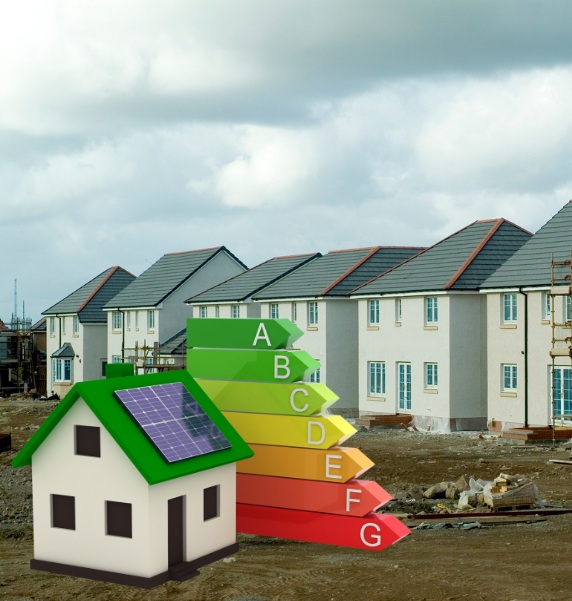
New builds are treated differently, mostly because construction companies are being encouraged to build more energy-efficient homes.
A new build EPC has to be issued by an OCDEA (On-Construction Domestic Energy Assessor) in order for Building Control to sign off the property.
It's important to note that an extension or alteration to a house that creates a separate, self-contained dwelling will be considered a 'new build' and will require its own EPC inspection and certificate.
All EPC inspections are conducted using the SAP methodology (SAP calculations). SAP stands for Standard Assessment Procedure, introduced in 1992 as a means of calculating energy efficiency in construction work. Although the methods have changed over time, they still underpin the EPC survey today.
However, SAP methods for new builds tend to be more stringent, as newly-built dwellings must display a significant shift towards sustainability, energy-efficient technologies and conservation of fuel.
SAP methodology for existing dwellings is used to produce EPCs, but in 2005 this was amended to become Reduced Data SAP (RDSAP), which cost less because it is not as detailed.
Even so, a SAP EPC certificate for a newly built property is more involved and generally more expensive as a result.
It's very likely.
Originally established in 2008, the EPC certificate scheme has been amended several times since then, mostly to strengthen the terms.
Following a consultation in 2020, the government announced proposals to raise the MEES regulations for England and Wales, making it compulsory for all rentals to have an energy rating of C or above by 2028.
In line with this policy, they proposed to raise the fine for non-compliance from £5,000 to £30,000 in 2028.
This was all part of the government's aim for the UK to achieve their Net Zero target by 2050.
However, in September 2023, they scrapped the new amendments, announcing that the current regulations will stand for the foreseeable future.
Even so, with pressure from environmental experts and NGOs to take drastic action on climate change, this is unlikely to remain unchanged, particularly in these times of political and economic uncertainty.
But, for now, we need to operate within the current rules that are in place.
EPC Crew will continue to issue EPCs according to these regulations and will adapt as and when any new changes occur.

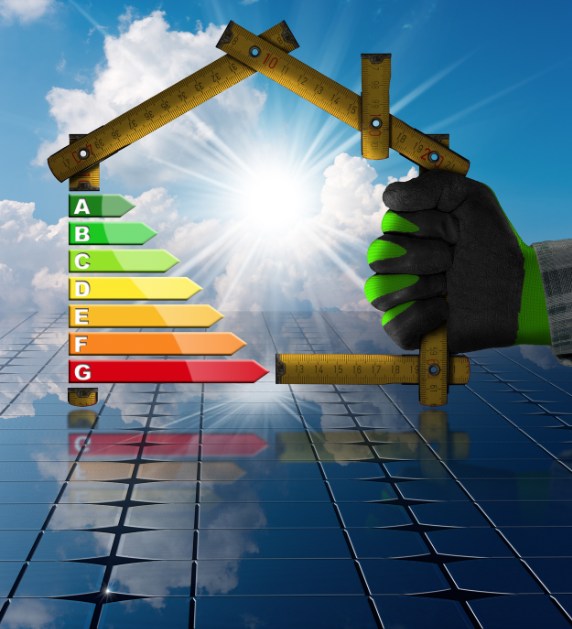
There are three main reasons why you'd want to get an Energy Performance Certificate:
So, when you are letting, building or selling a property, getting in touch with EPC Crew is the very best course of action.
Our experts will explain every step in detail and answer all of your queries. And when it comes to the inspection and assessment, they will be thorough but sensitive, acting with integrity throughout the process.
While some people see this legislation as an inconvenience, we regard it as an opportunity to create a better environment for all.
Working together, we can improve the energy use of all properties in the UK and lessen our impact on this planet that we all call 'home'.
Submit your review | |


Domestic Energy Assessor (DEA), also known as an EPC assessor, works out the energy efficiency of domestic buildings like houses and flats. They evaluate the energy consumption and efficiency of a property and provide an Energy Performance Certificate (EPC) that rates the energy use and suggests improvements. This assessment helps homeowners and potential buyers understand the energy performance of a property.
A domestic EPC is valid for 10 years and can be used as many times as required throughout this period. After it has expired, a new EPC certificate will need to be obtained and presented if or when the property is put on the market for sale or rental.
The typical cost of an EPC certificate falls somewhere between £35 and £120 inclusive of VAT. However, the actual cost depends on a variety of factors.
To obtain a new energy certificate for your property, including an energy performance certificate (EPC), you need to have it assessed by an accredited assessor. You cannot produce the EPC yourself. The cost of an assessment varies by assessor and the size of the property, and after the assessment, the assessor will provide you with a digital copy of your certificate.